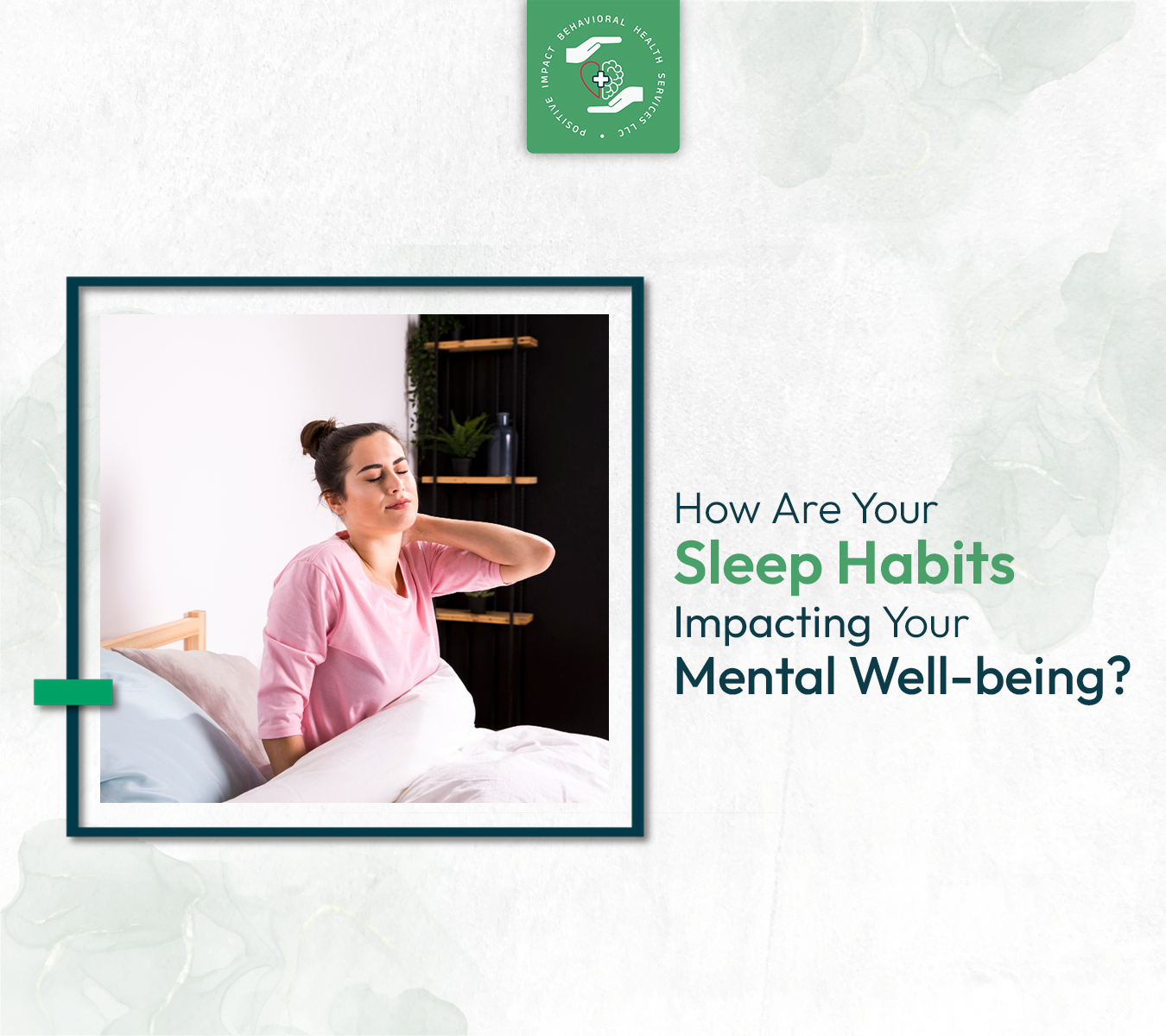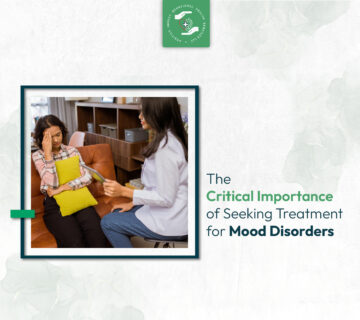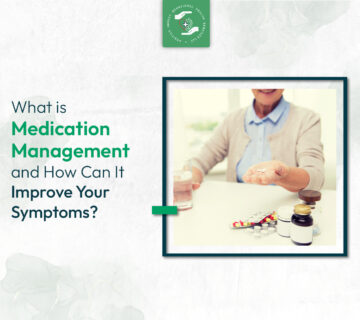Sleep helps your body and mind rest. Good sleep makes your thoughts clear. Good sleep helps your mood stay steady. Bad sleep can make you feel sad, worried, or angry. It can make it difficult to think and perform daily tasks. Positive Impact Behavioral Health Services helps you with sleep problems. We mainly focus on careful medication management. We also explain how therapy can help, but our main care is medication to manage symptoms.
How Sleep Helps Your Brain
When you sleep, your brain sorts memories. Sleep also helps the brain balance mood chemicals. Good sleep helps you feel calm and ready for the day. Without enough sleep, the brain gets tired. You may feel moody or slow. You may notice you worry more or cannot focus.
Common Sleep Problems
Some simple sleep problems are:
- Hard time falling asleep.
- Waking up a lot at night.
- Waking up very early.
- Feeling tired even after sleep.
These problems may come from stress, pain, medicines, or other health conditions like anxiety or depression.
Signs Sleep Is Affecting Your Mood
Watch for these signs:
- You feel sad most days.
- You feel worried a lot.
- You have trouble paying attention.
- You get angry fast.
- You stop enjoying things you used to like.
- You feel tired all day.
If you have these signs, sleep might be part of the problem.
How We Approach Sleep Problems
At Positive Impact Behavioral Health Services, our main focus is on medicine that helps with symptoms. Medicine can help balance brain chemicals and help you sleep more. Our team checks your health and your medications. We pick safe medicines that fit your needs. We watch for side effects and adjust as needed.
Our plan often includes:
- A careful review of your sleep and health history.
- Medicine choices that help with sleep or mood.
- Close follow-up to see how the medicine is working.
- Adjustments are made when needed to keep you safe.
We do not stop at medicine. We listen to your story. We explain how medicine may help. We work with you to make a plan that fits your life.
The Role of Therapy
Therapy can help with thoughts, habits, and feelings. It can teach skills to sleep better and to handle stress. Therapy is helpful for many people. At our clinic, therapy is part of the picture, but we mostly manage symptoms with medicine.
Sometimes we will:
- Explain how therapy can help your sleep habits.
- Suggest therapy if it would add benefit.
- Coordinate care with therapists when needed.
If therapy could help, we can guide you to find it. But our main work is to give and manage medicine that helps with symptoms right away.
Medicines We Use and How We Watch You
Some medicines help with sleep, and with mood or anxiety. Some medicines help both sleep and mental health. We choose medicines carefully. We look at your health, your other medicines, and any past reactions.
We also:
- Start with a safe dose.
- Check how the medicine affects you.
- Change the plan if you have side effects.
- Teach you about how to take medicines safely.
Our goal is to ease sleep problems and help your mind feel steadier.
Simple Sleep Tips That Support Medicine
Medicine works best when you add good sleep habits. Try these easy tips:
- Go to bed and wake up at the same time each day.
- Keep your bedroom dark and quiet.
- Turn off phones and tablets an hour before bed.
- Do calm things before sleep, like reading or deep breathing.
- Get sunlight and move a little during the day.
- Avoid heavy meals or lots of sugar right before bed.
These habits help your body know when it is time to sleep.
Meet Dr. Martins Akhibi
Dr. Martins Akhibi, DNP, PMHNP-BC, leads our team. He is a certified nurse practitioner specializing in psychiatric mental health. He has years of experience helping people with anxiety, depression, trauma, mood disorders, ADHD, and substance abuse. Dr. Akhibi listens with care. He uses medicine and close follow-up to help people feel better. He believes trust is the first step in healing.
When to Seek Help
Think about help when:
- Sleep problems last for many weeks.
- You feel very sad or hopeless.
- You have big mood swings.
- You cannot do daily tasks because of tiredness.
- You worry all the time, and it stops you from living.
If these happen, a medical review can help find the right medicine and plan.
What to Expect If You Seek Medication Management
When you come to us for medicine to help you sleep:
- We will ask about your sleep and your health.
- We will review any medicines you already take.
- We will explain the medicine choice and why we recommend it.
- We will check in with you to see how you feel and if changes are needed.
We focus on safety and clear steps. We help you understand the medicine and what to watch for.
A Gentle Link to Book
If you want to learn more or book an appointment, you can use this link: Book an Appointment. This link goes to the clinic booking page if you choose to use it.
Conclusion
Sleep and mental health are connected. Medicine can help balance symptoms and help you sleep. Therapy can add tools for habits and feelings, but our clinic focuses mostly on medicine to manage symptoms. We listen, explain, and follow up to keep care safe and clear. If you want, the booking link is above for an appointment.
Your sleep matters. Your mind matters. We aim to help with careful medicine and kind care.
FAQs
Q. When should I ask for medical help?
If sleep is bad for many weeks. If you feel very sad, very worried, or too tired to do normal things. That is a good time to have a medical review.
Q. Who will help me at the clinic?
Dr. Martins Akhibi and our team will listen. We will check your health and medicines. We work to make a safe plan for you.




